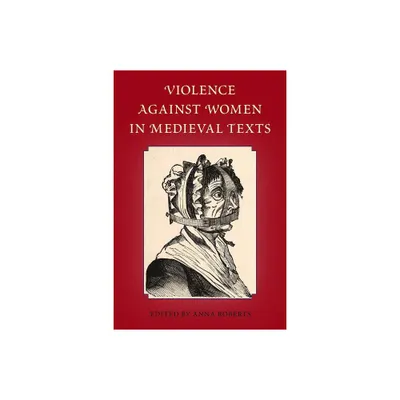Home
Three Spanish Querelle Texts: Grisel and Mirabella, The Slander against Women, and The Defense of Ladies against Slanderers
Loading Inventory...
Barnes and Noble
Three Spanish Querelle Texts: Grisel and Mirabella, The Slander against Women, and The Defense of Ladies against Slanderers
Current price: $34.95


Barnes and Noble
Three Spanish Querelle Texts: Grisel and Mirabella, The Slander against Women, and The Defense of Ladies against Slanderers
Current price: $34.95
Loading Inventory...
Size: OS
*Product Information may vary - to confirm product availability, pricing, and additional information please contact Barnes and Noble
This bilingual edition of the
Three Spanish
Querelle
Texts
is very well-conceived and will attract a wide audience among specialists and non-specialists alike. Francomano provides the first modern English translations of texts that enjoyed European-wide celebrity in the early sixteenth century. Her introduction is the best available summary of our knowledge about Torrellas’ two texts and Flores’
Grisel y Mirabella
. Her translations are more readable than the Spanish texts, dividing Flores’ elaborate, rambling sentences into more comprehensible discourse. She often captures the tone of ambiguous or mock sincerity in the pleadings of both Flores’ and Torrellas’ characters. Francomano has a special sensitivity to the ludic quality of these discourses which helps readers appreciate their expression of “male anxiety” and “female agency” in the gender politics of their era.
Three Spanish
Querelle
Texts
is very well-conceived and will attract a wide audience among specialists and non-specialists alike. Francomano provides the first modern English translations of texts that enjoyed European-wide celebrity in the early sixteenth century. Her introduction is the best available summary of our knowledge about Torrellas’ two texts and Flores’
Grisel y Mirabella
. Her translations are more readable than the Spanish texts, dividing Flores’ elaborate, rambling sentences into more comprehensible discourse. She often captures the tone of ambiguous or mock sincerity in the pleadings of both Flores’ and Torrellas’ characters. Francomano has a special sensitivity to the ludic quality of these discourses which helps readers appreciate their expression of “male anxiety” and “female agency” in the gender politics of their era.


















